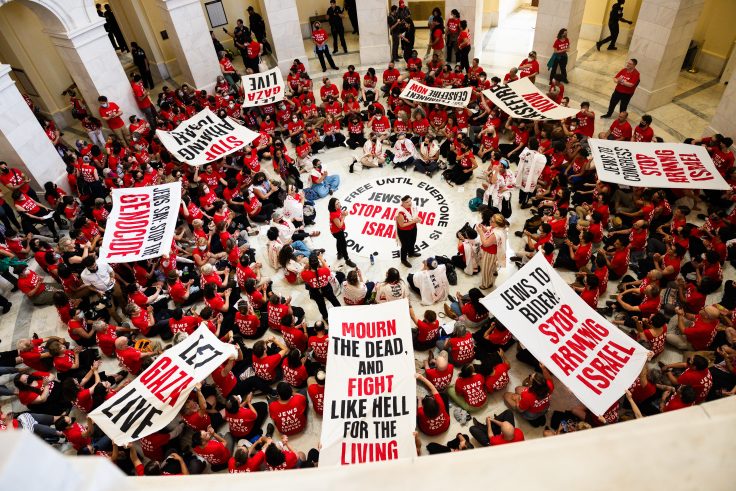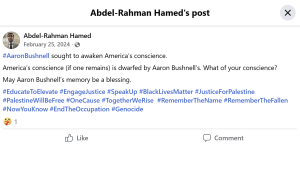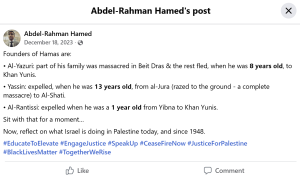The error comes as judges push for ‘more severe sanctions’ for attorneys who cite AI slop

A radical attorney representing an anti-Israel activist who helped organize an illegal traffic blockade in Washington, D.C., attempted to dismiss a class action lawsuit against his client by citing fictitious case law, suggesting the document was written by an AI chatbot like ChatGPT.
The lawsuit, which Hamilton Lincoln Law Institute (HLLI) filed in January on behalf of drivers trapped in their cars, accuses several anti-Israel organizations, including Jewish Voice for Peace, the Palestinian Youth Movement, and Maryland2Palestine (MD2Palestine), among others, of shutting down major roadways in the nation’s capital on Feb. 1, 2024, for close to an hour. Police arrested 23 anti-Israel activists on charges of “crowding, obstructing or incommoding.” Three were also charged with resisting arrest.
Abdel-Rahman Hamed, the counsel for MD2Palestine and its co-chair, Hannah Shraim, filed a motion to dismiss the lawsuit on June 30. But when HLLI attorneys reviewed the filing, they found Hamed cited case law that didn’t exist.
Hamed’s “brief includes phony citations that suggest improper reliance on AI or excessive carelessness and may require court attention,” HLLI’s attorneys wrote in their July 30 response opposing the motion.
“Shraim’s brief on this issue is particularly troublesome,” it continued. “She cites several cases that do not appear to support the proposition asserted; includes quotes that are not found in the cases; and even cites a case that doesn’t exist.”
In one instance, Hamed’s motion quotes from Doe v. Capitol Police, noting that an “injury was proximately caused by the defendant’s wrongful conduct.” But both the quote—and in fact, the case itself—are entirely fabricated, according to HLLI.
The fabricated citations are “exactly the sort of stuff AI hallucinates,” according to HLLI director Ted Frank, who said Hamed could face sanctions.
“This is happening over and over again so judges are insisting on more severe sanctions,” he told the Washington Free Beacon. “It’s really up to the judge, and there’s certainly precedent for serious sanctions.”
Hamed, like his client, is an anti-Israel activist. On Feb. 25, 2024, he valorized Aaron Bushnell, the airman who lit himself on fire in front of the Israeli embassy in Washington, D.C., to protest the Jewish state’s war in Gaza.
“#AaronBushnell sought to awaken America’s conscience. America’s conscience (if one remains) is dwarfed by Aaron Bushnell’s. What of your conscience? May Aaron Bushnell’s memory be a blessing,” Hamed wrote.
His comment echoed Hamas’s statement, which called Bushnell a “heroic pilot” who “will remain immortal in the memory of our Palestinian people.”
Months earlier, Hamed appeared to justify the radicalization of Hamas’s founders, noting that while children, they either had their families killed or were exiled. “Now, reflect on what Israel is doing in Palestine today, and since 1948,” he wrote in the Dec. 18, 2023, post.
Hamed’s LinkedIn bio, meanwhile, reads “I deny, defy, and defeat Zionists, antisemites, and White Supremacists.” In a separate post he wrote, “Palestinian Jews, Christians, and Muslims will rid themselves of and be free from the European-borne malignancy of Zionism and antisemitism (two sides of the same coin). It’s only a matter of time.”
He did not respond to a request for comment.




















